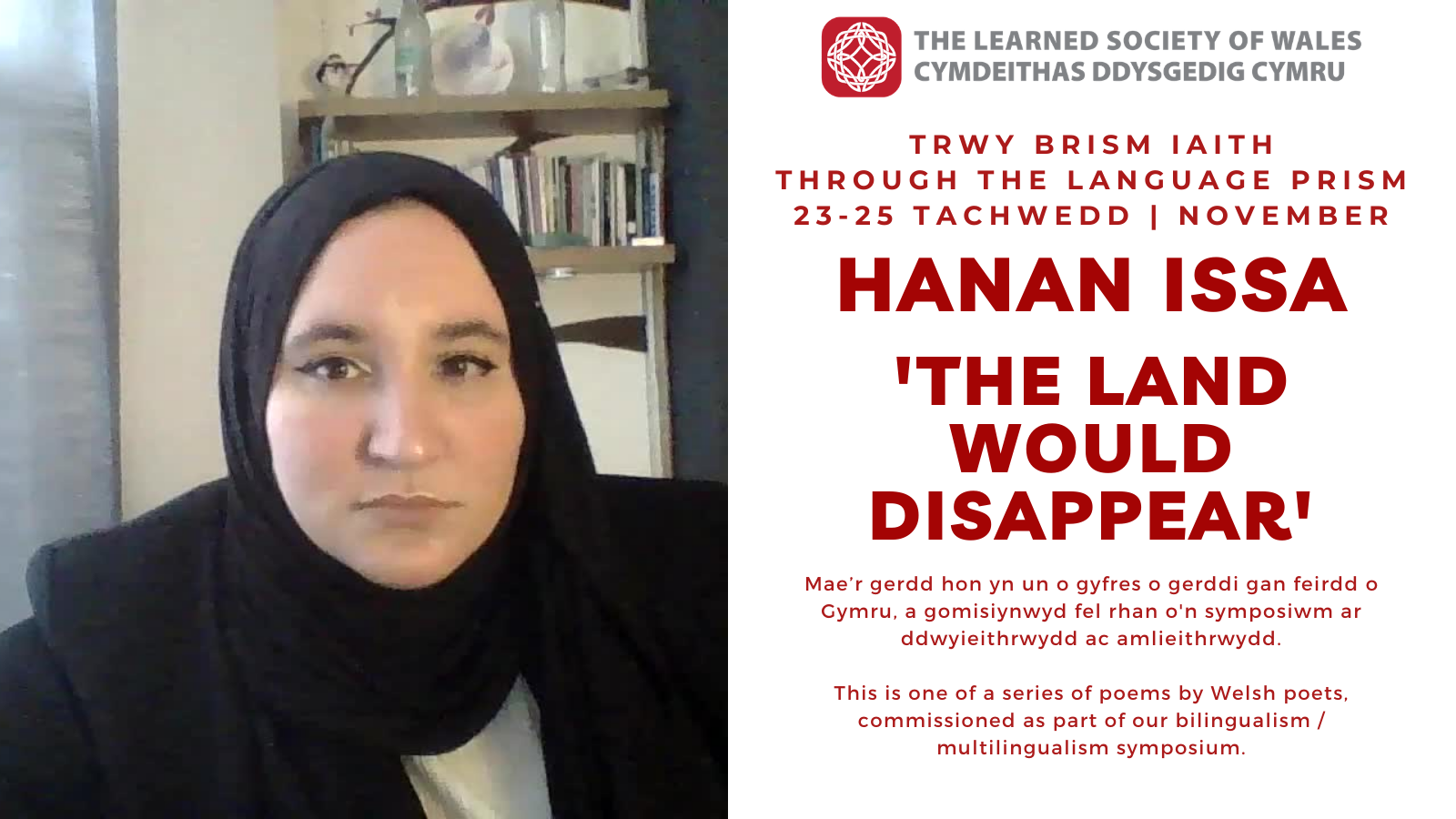Poems Unveiled to Mark Start of Language Conference

A series of poems by Welsh poets that were specially commissioned by the Learned Society of Wales are unveiled today as part of a language festival and conference that aims to explore how Wales can make the most of its unique language heritage.
Nine poems were selected in response to an open brief to create poetry in response to the subject of ‘what is language to you?’. The intention was to support creatives in these difficult times, and because poetry offers a wonderful space to consider language in all its facets.
Poet Hanan Issa was one of those chosen, whose poetry is inspired by her own mixed heritage connections and disconnection with Wales. Her poem, ‘The Land would Disappear’ captures the juxtapositions between being a mixed-race female living in Wales. Rufus Mufasa’s poem, ‘Addasu’, about lockdown learning and adapting to our new normal, is delivered though a fusion of both languages.
The poems are a celebration of language and bilingualism as part of Trwy Brism Iaith, a free online event, organised by the Learned Society of Wales. The three-day event consists of ten drop-in sessions, tackling issues such as:
- How can Wales achieve a million Welsh speakers by 2050?
- Why are bilingual brains different according to neuroscience?
- How does language shape our sense of belonging?
The event kicks off today with a welcome from Eluned Morgan, Minister for Mental Health, Well-being and Welsh Language. She will be joined by an impressive line-up of speakers from academia, education and the arts include Professor Mererid Hopwood, Professor Antonella Sorace, novelist and academic Patrick McGuinness, American academic David Gramling and Professor Alison Phipps.
These, and other speakers from around the world will look at how language creates a sense of identity, belonging and cultural diversity. It will ask what practical policy steps are needed to avoid the risk of language extinction. It will point to the lessons learnt in Wales and the lessons Wales can learn from other countries. It will consider how Wales can meet its wellbeing goals to create a vibrant culture and thriving Welsh language to achieve a million Welsh speakers by 2050.